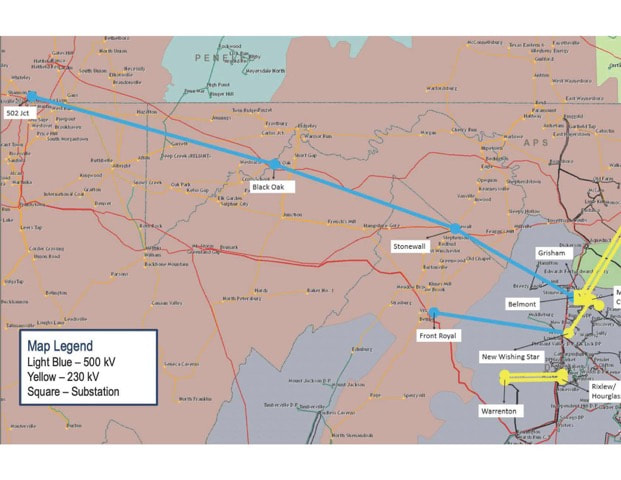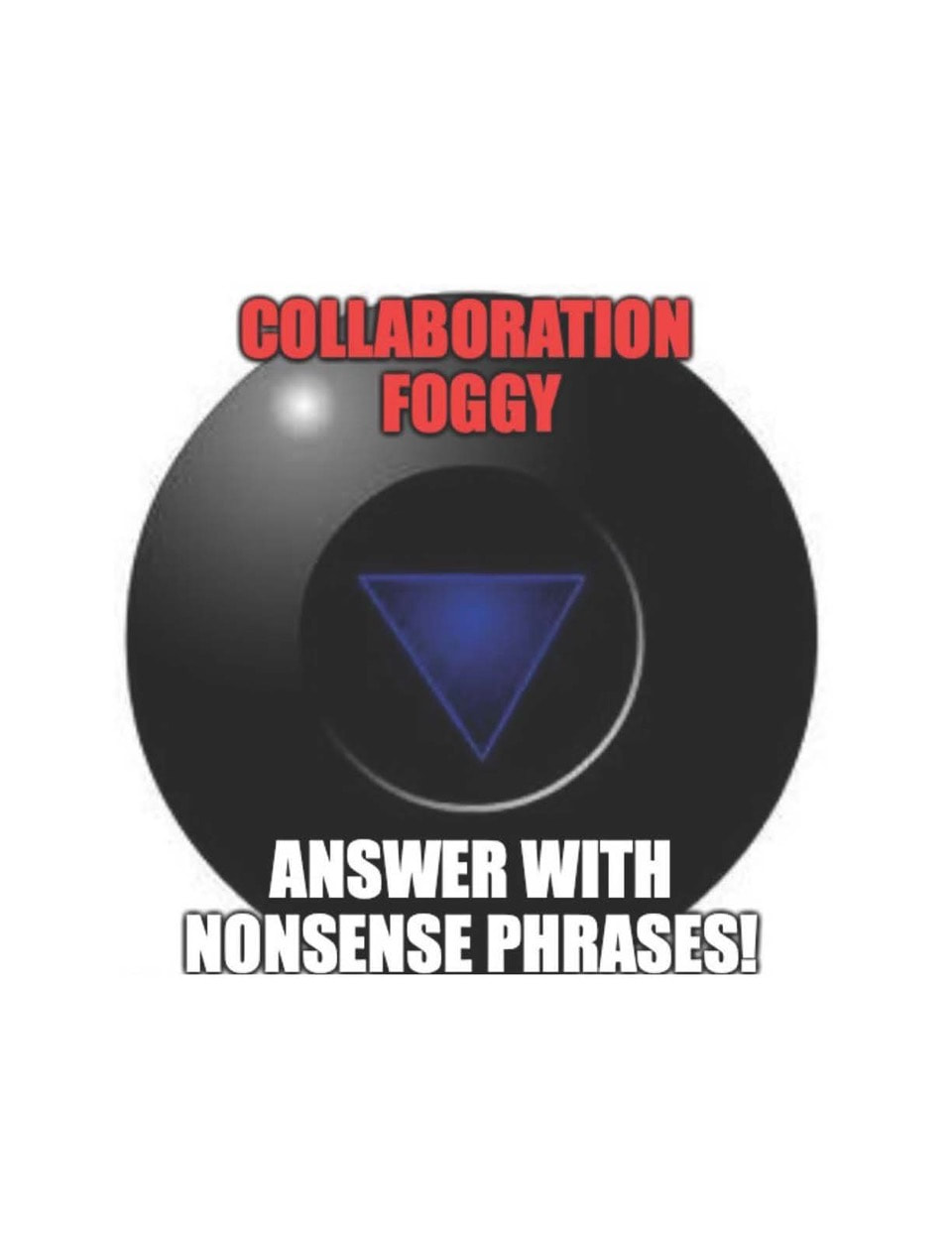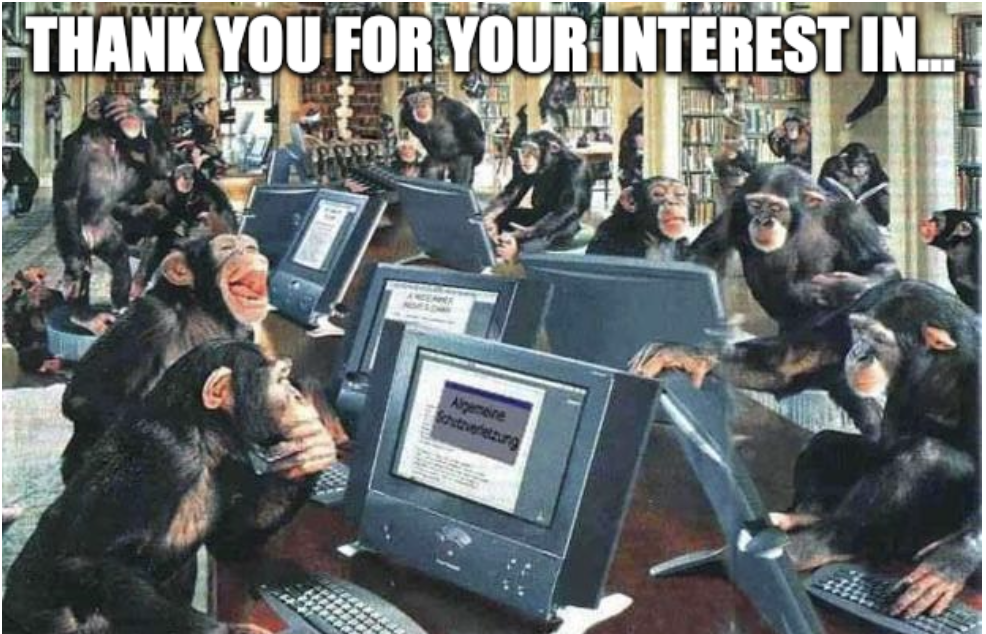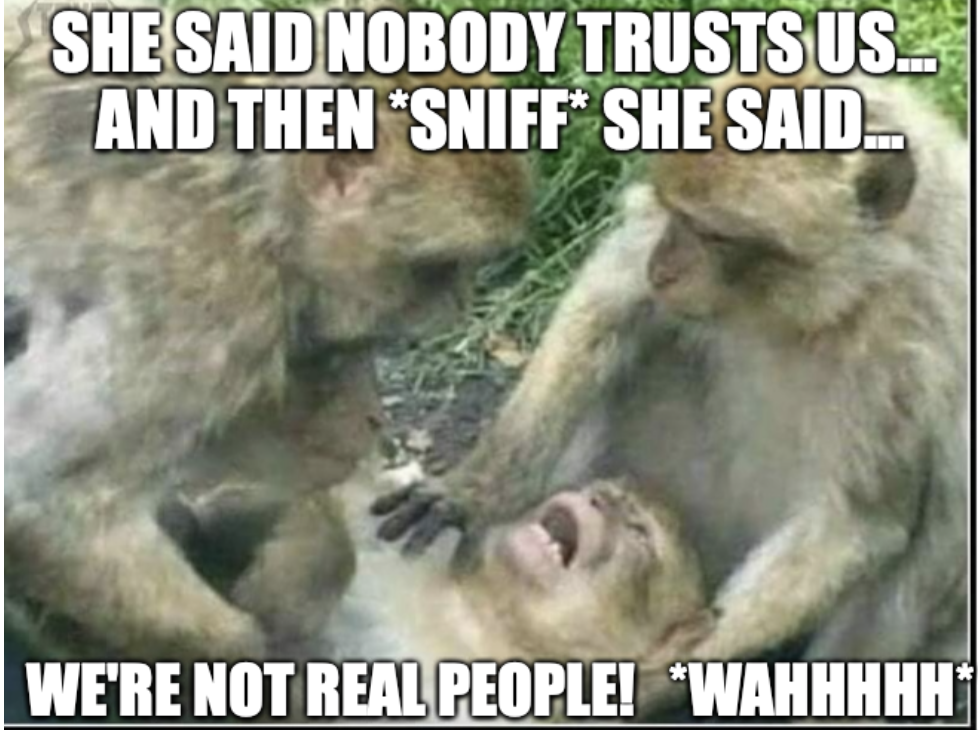Collaboration is a partnership; a union; the act of producing or making something together. Collaboration can take place between two people or many people, strangers or best friends. To collaborate is to commit to the possibility of producing an outcome greater than one that would be developed in a silo.
MidAtlantic Resiliency Link partner NextEra has begun its "collaboration" with a shell of a website. The website says:
The company’s goal is full transparency and collaboration with communities and stakeholders...
So, I did.
Have you considered a direct route from the new Woodside substation to Aspen in order to avoid all the opposition? Yes or no?
NextEra's reply sounded like it was written by a Magic 8 Ball.
Thank you for your interest in the MidAtlantic Resiliency Link. No route has been confirmed at this time. Any route that has been circulated at this stage is conceptual. We are in the process of developing a detailed routing study to evaluate route options. As part of this process, we will work with First Energy, the other transmission developer assigned a portion of the route, to identify a point of interconnection.
Once again, we appreciate your engagement, and we look forward to working with you as the project progresses. Thank you.
Best regards
MARL Team members
So, yes or no?
I didn’t order a word salad.
Is a direct route from Woodside to Aspen even being considered?
Thank you for your email.
Yes, all options are being evaluated as part of the routing study. In general, the main goal of the routing study is to collaborate closely with local communities, stakeholders, regulators and landowners to identify a route that meets the technical specifications and economic needs of the project while avoiding or minimizing impacts on landowners, local communities and the natural environment. At the same time, this project was selected by the regional grid operator to meet regional reliability needs and any final route must meet that criteria. Thank you.
So, I tried one last time to appeal to "the Team's" strategic thinking (such as it may be):
Dear “Team”,
You should have stopped at “yes,” unless the answer is actually no. I still don’t know. Are you looking at any routes that cross the Appalachian Trail further south than the current crossing?
Your latest word salad raises more questions than it answered.
1. Who are the “stakeholders” if they are not local communities, regulators and landowners?
2. What are the technical specifications of the project?
3. What are the economic needs of the project?
4. What are the “regional reliability needs” criteria of the route?
If your goal is to collaborate closely with local communities, you are not developing a good relationship with the communities if you cannot answer a simple question. Trust is the most important factor in developing community relationships and it is severely lacking right now. Keeping communities in the dark while you develop a route is not collaboration. If you cannot provide clear and accurate information, impacted communities will get their information elsewhere, from people they can trust.
The “team” stuff is also off-putting to impacted communities. Can’t you be a real, accountable person, instead of hiding behind a vague moniker like “team”?
Who are the “stakeholders” if they are not local communities, regulators and landowners?
Perhaps they are greedy elected officials, lobbyists, the data centers, other corporations with tons of money, astroturf front groups, hired advocates, environmental and other special interest groups whose agenda can be directed with generous donations, and other entities nowhere near the proposed route. Why would any of these "stakeholders" have an interest in the route of the project? It's not going to be in their backyard. In fact, they may only be "stakeholders" in order to make sure it doesn't end up impacting any of their own interests and, instead, impacts yours.
I think the technical specifications of the project are to connect over 10,000MW of coal-fired electric generators in the Ohio Valley to data center alley via a new 500kV electric transmission project. Of course, this has no correlation to routing... the project could go anywhere and still make the connection. But it's supposed to sound official and you're not supposed to question a statement like this because you're supposed to be dumb.
What are the economic needs of the project?
This one is easy! Let's refer to PJM's Constructability and Financial Analysis Report for this project. NextEra bid that it could complete MARL for $683.5M. PJM's analysis of project cost put the project more in the neighborhood of $1.2B, a 30% increase. But, hang onto your wallet... NextEra included a contingency budget of 14%. NextEra also offered some cost control promises. NextEra's Return on Equity is capped at 9.8%. Its equity share is capped at 45%. These numbers are important because the ROE is the amount of interest NextEra earns on the capital costs of MARL for the next 40 years while we slowly pay them back for the project (think mortgage, or car loan, where you finance a big purchase over time). NextEra can only contribute 45% of project costs that will earn that 9.8% ROE, the other 55% of project costs will have to be debt, which we repay at its own interest rate. NextEra offered a "soft cap" on its expenditures that promises any expenses that exceed the estimate earn no return at all -- 0%. However, regardless of any of these provisions, NextEra's earnings cannot be lower than 7 or 7.5%. Then NextEra promised a schedule guarantee that the project would be completed by its June 2027 deadline. For each month the project is delayed past then, NextEra's ROE falls 2.5 basis points, with a maximum drop of 30 points. What is a basis point? 100 of them make up 1 percent of the ROE. Therefore, a 9.8% ROE contains 980 basis points.
Wow, we're just going to be saving buckets of money here! Or maybe not. Anyhow, all this is relevant to know that NextEra must control its costs. It cannot make any routing changes that increase its costs such as different routes, different structures, different land acquisition. NextEra is also sensitive to staying on schedule. If "collaborating" with you delays things, then your opinion doesn't matter.
What are the “regional reliability needs” criteria of the route?
This is pretty nonsensical. Regional reliability needs are rooted in technical specifications and inservice date. The "Team" is just repeating itself and trying to make it sound like something different.
Yesterday, I was reading a news article about MARL and I ran across the same ridiculous phrases that populated. my own email exchange with "the Team." Maybe "the Team" is nothing more than an automated robot choosing from a list of approved phrases to respond to inquiries that are used by many big companies. If so, is it programmed to "collaborate" or simply to pretend?
Do you trust NextEra? I don't. NextEra can't answer a simple question. Much of what they said is meaningless gibberish. Trust is first and foremost and NextEra has already blown it. Of course, gaining the trust of a public that suspects NextEra wants to take their property and construct a huge transmission line on it is an uphill battle to begin with, but hiding behind "the Team" and refusing to answer a simple question with a straight up answer destroys whatever trust ever might have existed. Get your information elsewhere.
True "collaboration" on developing a project route means that impacted communities should be participating in the route development and evaluation process. However, they are not. Instead, NextEra is developing the route all on its own, using its own criteria, and will only "collaborate" with the community to show them the finished route selections and accept their feedback. None of the routes are proposed by impacted communities. Impacted communities are estranged from NextEra's actual routing process. This isn't "collaboration." It's route consultation by fait accompli.
And that never works. Impacted communities want to know what problem is being solved and to be active collaborators in developing the solution. Keeping them in the dark until the route is selected is not "collaboration." It's a route developed in a silo. And it's a recipe for project delay and failure.




 RSS Feed
RSS Feed